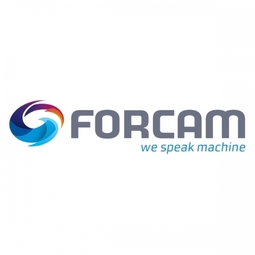Download PDF
Deliver Results in Productivity
Technology Category
- Analytics & Modeling - Real Time Analytics
- Functional Applications - Enterprise Resource Planning Systems (ERP)
- Functional Applications - Manufacturing Execution Systems (MES)
Applicable Industries
- Consumer Goods
- Electronics
Applicable Functions
- Process Manufacturing
- Business Operation
- Quality Assurance
Use Cases
- Machine Condition Monitoring
- Predictive Maintenance
- Process Control & Optimization
- Factory Operations Visibility & Intelligence
- Real-Time Location System (RTLS)
Services
- System Integration
- Software Design & Engineering Services
- Training
The Challenge
In 2014, Nordson Corporation expanded its commitment to Continuous Improvement by introducing company-wide Key Performance Indicators (KPIs) and the Nordson Business System (NBS). The KPIs were designed to measure progress around critical performance drivers such as growth, profitability, productivity, asset utilization, and customer satisfaction. Nordson aggressively tracked and reported progress against these KPIs for every business unit. The NBS, rooted in Lean Six Sigma, was implemented to improve performance within each KPI. At Nordson Adhesive Dispensing Systems in Johns Creek, Georgia, the team determined that machine performance needed to be measured in real-time to quickly recognize and correct errors, reduce waste, and continuously optimize productivity. They reviewed available solutions and decided to implement the Shop Floor Management Technology provided by FORCAM.
About The Customer
Nordson Corporation, founded in 1954 and headquartered in Westlake, Ohio, operates in more than 30 countries. As a market leader, Nordson delivers precision technology solutions to help customers succeed worldwide. The company engineers, manufactures, and markets differentiated products and systems used for dispensing adhesives, coatings, sealants, biomaterials, and other materials, fluid management, test and inspection, UV curing, and plasma surface treatment. Nordson serves a wide variety of consumer non-durable, durable, and technology end markets, including packaging, nonwovens, electronics, medical, appliances, energy, transportation, construction, and general product assembly and finishing.
The Solution
Nordson implemented the FORCAM FORCE Shop Floor Management Technology to better measure machine performance in real-time, complementing their SAP ERP system. The implementation was carried out in two phases. Phase 1 involved setting up real-time machine data collection, web visualization, and alerting. This helped employees become familiar with the user interface and data in the FORCAM FORCE product suite. Phase 2 involved interfacing FORCAM's technology with their SAP ERP system, allowing operators to interact with both systems from the same screen. This integration enabled Nordson to visualize actual machine status, calculate Overall Equipment Effectiveness (OEE), and analyze deviations between planned and actual cycle times. The technology also facilitated weekly OEE meetings and Rapid Improvement Events (RIE) to focus on specific machines and identify opportunities for improvement.
Operational Impact
Quantitative Benefit
Related Case Studies.
.png)
Case Study
Improving Vending Machine Profitability with the Internet of Things (IoT)
The vending industry is undergoing a sea change, taking advantage of new technologies to go beyond just delivering snacks to creating a new retail location. Intelligent vending machines can be found in many public locations as well as company facilities, selling different types of goods and services, including even computer accessories, gold bars, tickets, and office supplies. With increasing sophistication, they may also provide time- and location-based data pertaining to sales, inventory, and customer preferences. But at the end of the day, vending machine operators know greater profitability is driven by higher sales and lower operating costs.

Case Study
Remote Temperature Monitoring of Perishable Goods Saves Money
RMONI was facing temperature monitoring challenges in a cold chain business. A cold chain must be established and maintained to ensure goods have been properly refrigerated during every step of the process, making temperature monitoring a critical business function. Manual registration practice can be very costly, labor intensive and prone to mistakes.

Case Study
Series Production with Lot-size-1 Flexibility
Nobilia manufactures customized fitted kitchens with a lot size of 1. They require maximum transparency of tracking design data and individual processing steps so that they can locate a particular piece of kitchen furniture in the sequence of processes.








